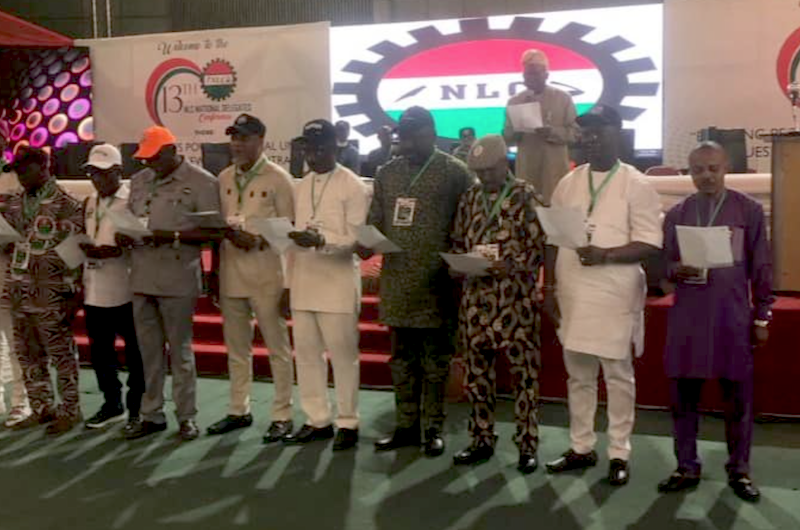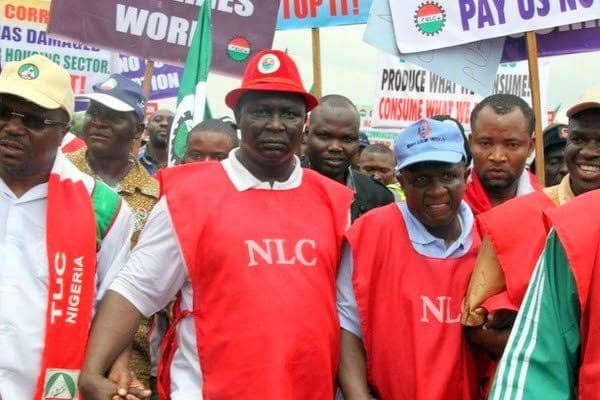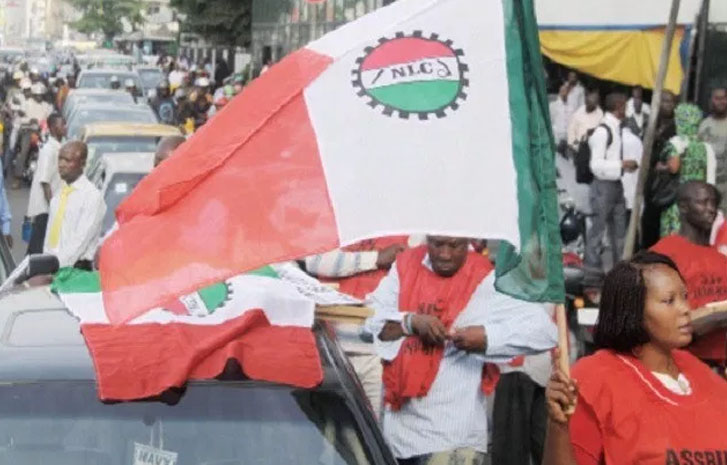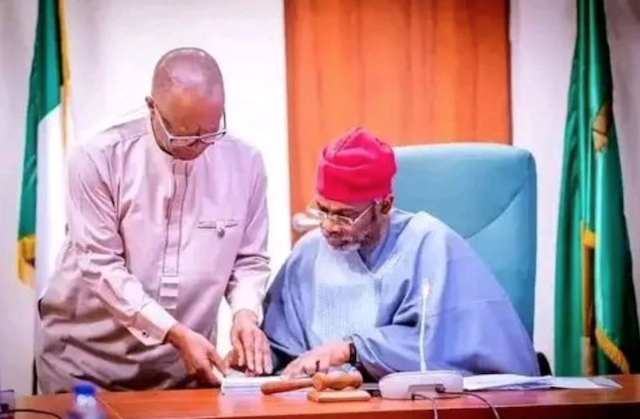The Nigeria Labour Congress (NLC) on Wednesday swore-in new executives, with Mr Joe Ajaero as the new president to lead the workers for the next four years.
Ajaero, former General Secretary of the National Union of Electricity Union, was voted on consensus at the 13th NLC’s National Delegates Conference in Abuja.
Ajaero took over the NLC leadership from Ayuba Wabba, who served between 2015 and 2023.
In his acceptance speech, the new NLC president said that the executives were committed to pursuing the interest and desires of workers and the entire Nigerians.
He promised that his leadership would speak for the millions of Nigerians and also seek a platform to lift them out of poverty.
”We, therefore, pledge our loyalty to the NLC, workers, the Nigerian people and the country. Our thoughts and actions shall be propelled by this avowal,” he said.
He said that his leadership would pursue a new national minimum wage law that would take into consideration the objective reality of the socio-economic situation, and expand its reach to capture more workers.
According to him, the wage review law will be sought through the national labour advisory council, to ensure that all loopholes exploited by workplace partners to restrict the efforts of making workplaces more decent compliance are blocked.
”We urge all employers of labour who have unsettled issues with their workers and unions to immediately resolve them to avoid our intervention,” he said.
Ajaero urged the government to review the privatisation policy on electricity sector as it was mired in corruption.
Other members of the executive include Prince Adewale Adeyanju, Deputy National President; Mr Audu Amber, 2nd Deputy National President; Mr Kabiru Sani, also a National Deputy President.
Ambali Olatunji was elected the National Treasurer; Benjamin Anthony, Vice President; Mr Steve Okoro, Vice President; Mr Michael Nnachi, Vice President; Mr Olawole Sunday, Vice President; Mr Marwan Adamu, Financial Secretary.
Others are, Mr Williams Akporeha, National Trustee; and three Internal Auditors, Mr Babatunde Olatunji, Mr Mohammed Ibrahim and Haruna Ibrahim; as well as two ex-officio members.
Fuel: Ajaero urges FG to end queue in 2 weeks
Meanwhile, the newly-elected President of the Nigeria Labour Congress (NLC), Mr Joe Ajaero, has urged the Federal Government to find a lasting solution to persistent fuel queues to avoid industrial action.
Ajaero made the call on Wednesday while addressing workers at the 13th NLC National Delegates Conference in Abuja.
He said that the government had two weeks to address the ongoing fuel scarcity to avoid reaction from organised labour.
According to him, Nigerians suffer and queue to get fuel and that should not be.
”We will definitely not keep quiet in the face of this deliberate defilement of citizenship by the ruling elites as we may mobilise across the nation to nudge the government to act more responsibly towards the citizenry.
”We will also seek ways of alleviating the suffering that currently walks our streets with arrogance,” he said.
On election, the NLC leader said that politicians should play according to the rules and avoid actions that could truncate the democratic process and imperil the nation.
He said that the Independent National Electoral Commission (INEC) should ensure a transparent and equitable conduct of the elections at all levels, adding that Nigerians should also seize the opportunity to vote the right people into positions of power.
”Those that are destroying our nation and stealing our collective patrimony must not be allowed any longer in our corridors of power.
”As Nigerians, we must not allow them divide us along religious and regional lines. Our demands on the Nigerian State are basically the same.
”We are only asking for a secure nation where we can move freely and carry out our daily activities without violently losing our lives and properties.
”We have demanded equity and fairness in the sharing of our nation’s resources, functional and accessible education system for our children.
”That is increasing access to quality medical care, quality roads, increasing access to nutrition and generally elevating the factors that increase human wellbeing,” he said.
Ajaero, therefore, advised the people to vote the candidates who have the competence and character to deliver on these demands in February and March.







